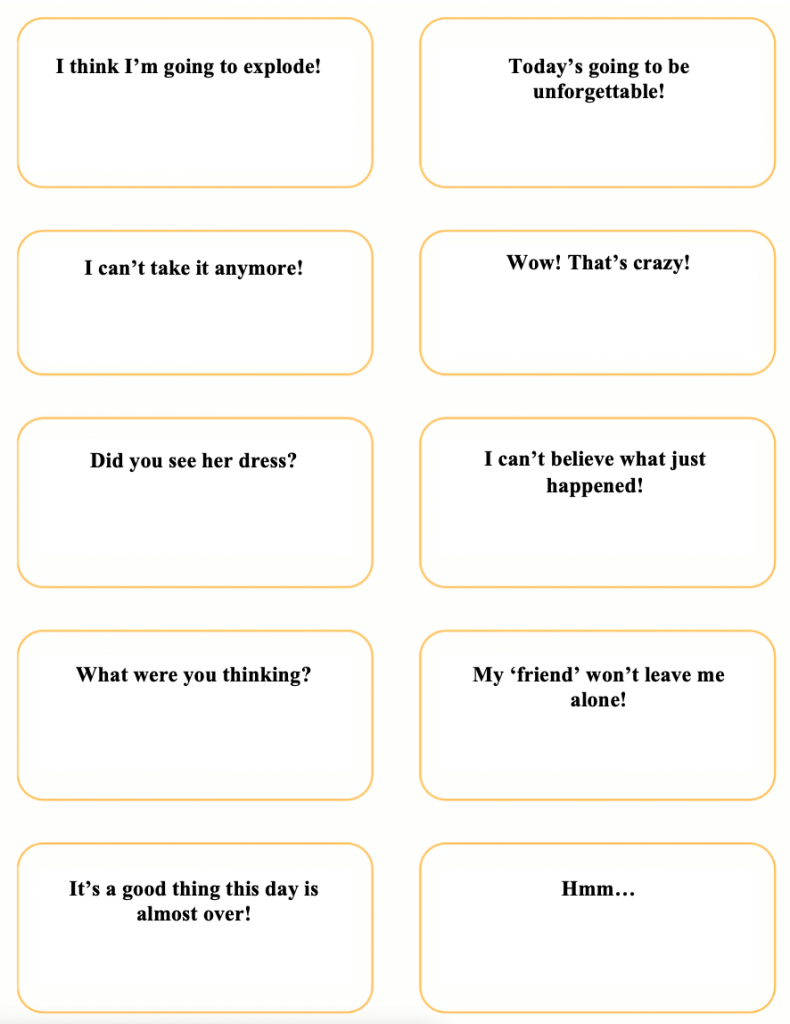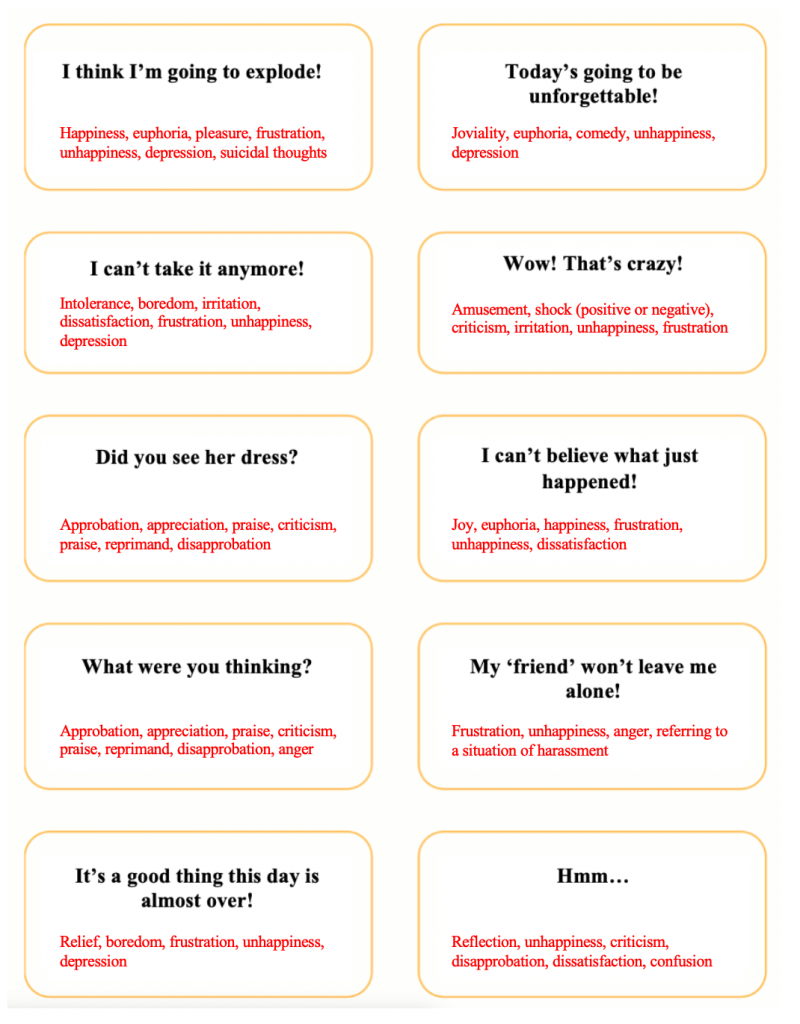There are a million ways to understand a sentence. Online, this phenomenon is amplified because we cannot see the person : we can only interpret their intention. This game aims to explain how complex communication is online and what the consequences can be when a message/comment is misinterpreted.
General Objective
Preparation time for facilitator
Competence area
Time needed to complete activity (for learner)
Name of author
Support material needed for training
Resource originally created in
Introduction
Internet is a place of exchange and like all places of exchange, context is important. The problem is that as opposed to ‘real’ life – where the person with whom we are discussing tends to be in front of us, online comments are often read without context and often written by people we don’t know. This can often lead to interpretations far from the sense the author intended. During this workshop, we will prioritise the following:
- Comments taken out of context can be misinterpreted
- How can we avoid ambiguity when commenting on social media platforms?
Facilitation tip: This workshop can be used as an introduction to the following:
Comment card game
 Step 1 Having printed and cut in advance the cards above, give them out to participants asking them to sort the cards into three categories:
Step 1 Having printed and cut in advance the cards above, give them out to participants asking them to sort the cards into three categories:
- Comments with a positive tone
- Comments with a negative tone
- Comments with a context-dependent ambiguous tone
Step 2 Once the comments are sorted, participants should give their thoughts on the following:
- which of the three comments that have the broadest number of different interpretations
- which of the three comments that are most susceptible to cause conflict if they are misinterpreted
Step 3 Finally, ask them to think of different possible interpretations for each comment. For this, refer to the cards below – but don’t give these out. 
Ambiguity of online communication
For every situation below, ask:
- a participant to respond with a comment card used previously
- another to say how this card can be interpreted
- ask the first to modify their response so all ambiguity can be avoided
Questions
- You learn that your friend has been chosen to be part of the school football team
- The school was flooded due to flooding
- A new teacher started at school
- You just tripped in the yard in front of all the students
Facilitation tip: You can use those suggested questions or make up your own where suitable or as you see fit.
Discussion
Get the group discussing the following questions:
- Has a comment you have written been misinterpreted (even a long time after writing it)? Did this cause you stress or lead to conflict?
- Have you been hurt by a comment that was sent to you or what was posted on one of your social media accounts? Has your interpretation of a comment upset you?
- Is the context of a text message important?
- If we would not say something out loud, should we send it via written message?
- What can we do to avoid ambiguities in our online communication? For example: be as precise as possible in our expression, contextualise everything, have someone else read the comment, etc.